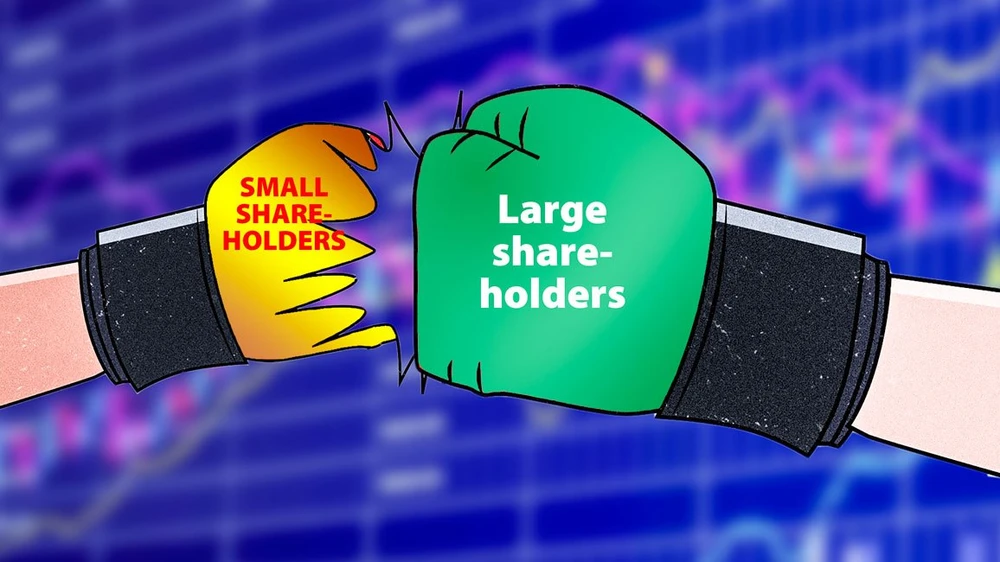
This potential risk may well be curbed by the amended Enterprise Law that was approved by the National Assembly on 17 June, and which will be effective from 1 January 2021. The amended Enterprise Law has removed the regulation of owning stake for atleast six consecutive months, and shareholders owning minimum 5% of shares to have rights to: (i) Nominate candidates to the Board of Directors or Board of Supervisors; (ii) Review and extract important information; (iii) Request to convene a general meeting of shareholders; (iv) Request the Board of Supervisors to examine each specific issue related to the management and administration of company operations when deemed necessary.
Shareholders take control
In corporate governance, the most important thing is control, which any shareholder, small or big wants to have. There are also cases where ownership is not higher than control. For example, Enterprise A owns 51% of Enterprise B, and Enterprise B owns 51% of Enterprise C. As a result, Enterprise A only owns 26% of Enterprise C but has control of Enterprise C.
When shareholders take control, decisions are made based on their interests, or sometimes against the interests of other shareholders, who are actually small shareholders. The most commonly used method is to make transactions with third parties that have close contact with them and where the terms are good for the other party but unfavorable for the enterprise. Some specific examples are buying and selling, exchanging assets, giving loans, and contracting for services. In Vietnam there have been RPT cases to withdraw small shareholders. People interested in this topic can easily see from unlisted companies on the stock exchange.
Research shows that controlling shareholders tend to hold cash or similar assets, much more than necessary for businesses. The reason is that with cash, controlling shareholders can make transactions for their benefits easily and faster. In addition, controlling shareholders also tend to hide or change the data to expropriate small shareholders. In addition, if the controlling shareholder and the enterprise are together in the group, the small shareholder becomes very vulnerable. There are also cases where shareholders control by using tricks to beautify the balance sheet in the short term, when businesses have financial problems, or through RPT to implement their own intention, such as making up stock prices, or revaluating businesses.
In cases where the law protecting investors is still weak, the level of concentration of ownership in joint stock companies is high, so small investors are naturally afraid of long-term investment in enterprises. Along with limiting the role of institutional investors, most joint stock companies operate inefficiently or below their potential.
Protect small shareholders
Joint stock enterprises in Vietnam have a high degree of ownership concentration. In addition to that, the institutional and legal protection of investors is incomplete, the role of institutional investors, investment banks, as well as the role of independent boards has not been properly recognized, while solutions in developed markets cannot be applied in Vietnam.
Instead, some of the following recommendations may partly protect the interests of small shareholders. Firstly, increase the voting rights of small shareholders at the AGM, by not allowing shareholders related to RPT to vote. As such, the adoption of decisions involving RPT will be more objective. Secondly, enterprises are prohibited from guaranteeing debts to controlling shareholders, or ensure transparency in asset transactions involving controlling shareholders or related parties.
It is expected that when the above recommendations are implemented, the interests of small shareholders will be better protected, thereby encouraging people to believe in a clean business environment. A healthy business community will help create jobs for the prosperity of the people and the nation.




















